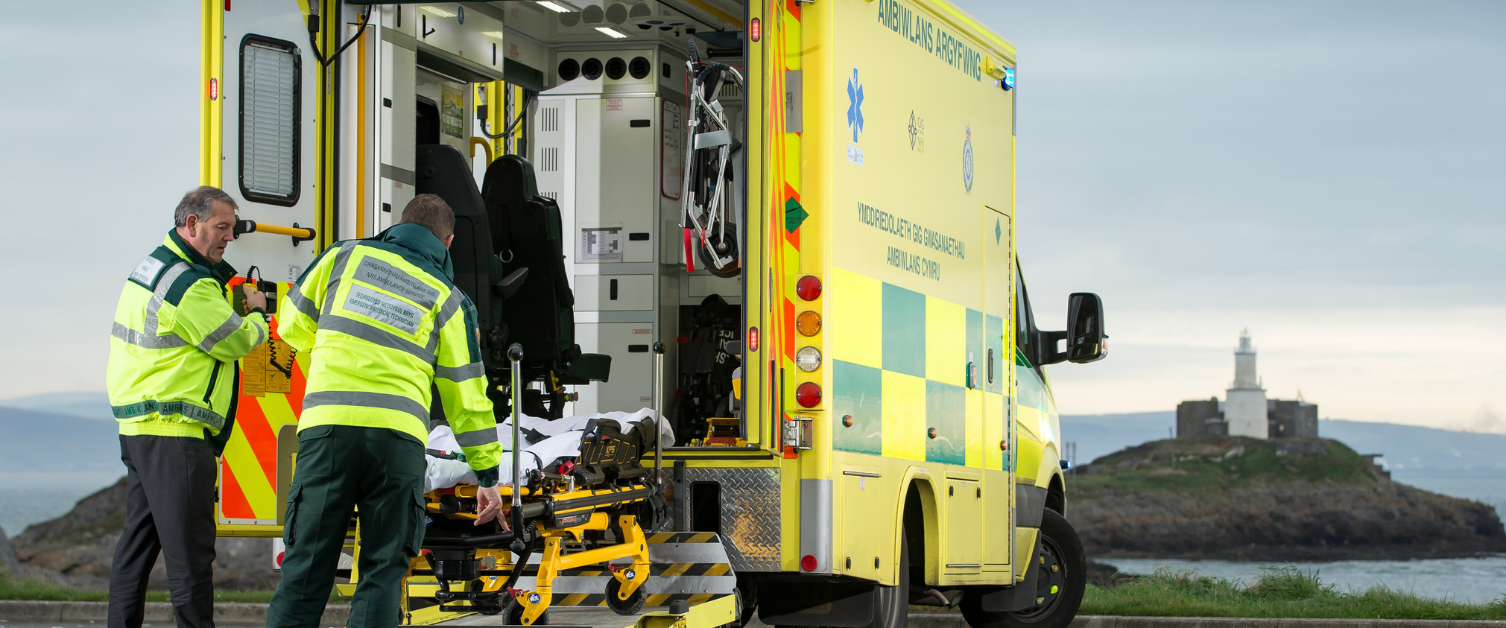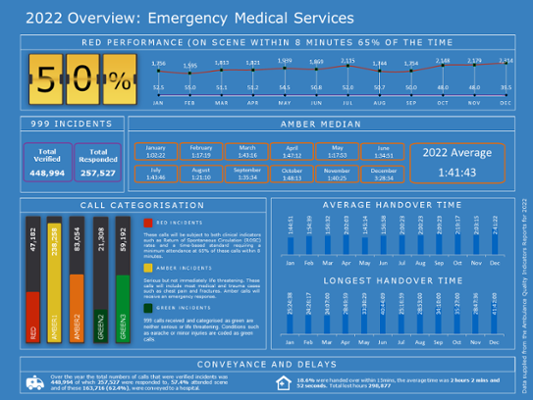Emergency Medical Services (EMS)

The Emergency Medical Service (EMS) deals with emergency (999) and urgent calls (those from doctors, midwives or nurses) as well as some high acuity inter hospital transfers. An emergency ambulance crew normally comprises of a Health and Care Professions Counsel (HCPC) registered Paramedic and an Emergency Medical Technician (EMT).

Both Paramedics and EMTs are highly trained in all aspects of pre-hospital emergency care and our ambulances are equipped with a wide range of emergency care equipment to manage patients who are seriously ill or injured.
Crews have to be highly skilled and able to treat and stabilise patients at home where appropriate or be able to transfer patients to hospital without unnecessary delay. They need to be quick thinking and decisive, yet able to provide a calm and reassuring environment for patients and relatives. Both Paramedics and EMTs are trained in emergency response driver training and may work within ambulances, or Rapid Response Vehicles.
The work of Paramedics and EMTs is varied and demanding. Crews do not know what the next call will entail but they do know that the patients and their relatives will be counting on them to make an assessment and provide treatment which may be routine but sometimes may be the difference between life, death or disability. This variety, responsibility and autonomy is not for everybody but it is the thing that sets ambulance service roles apart from other similar healthcare roles. In time there is the opportunity for development as an advanced paramedic practitioner as well as the opportunity to develop as a senior paramedic or move into duty operations manager.
Ambulance work is challenging, unpredictable but never lacking in interest. It can be the most rewarding job, but it is sometimes physically and emotionally demanding.